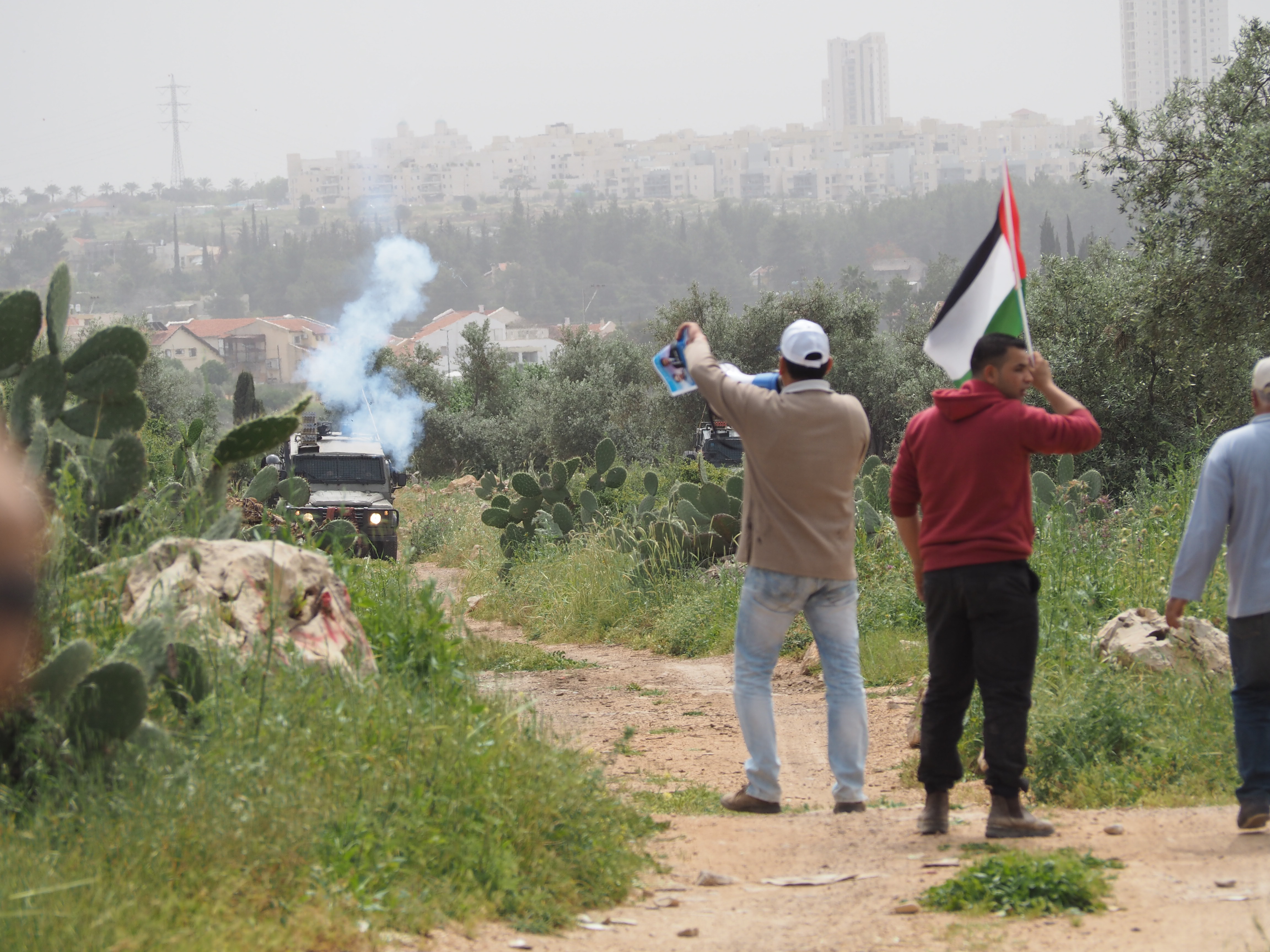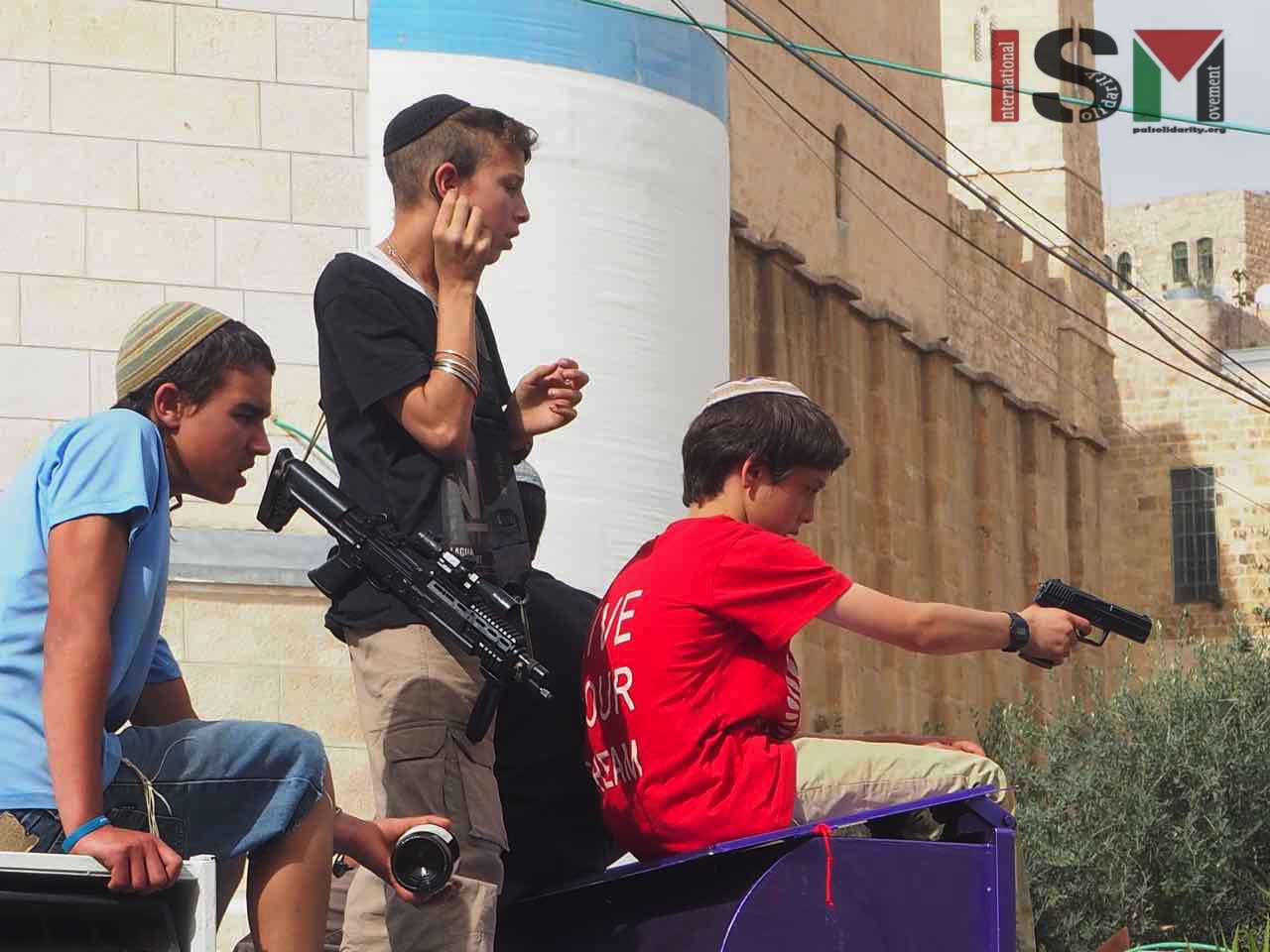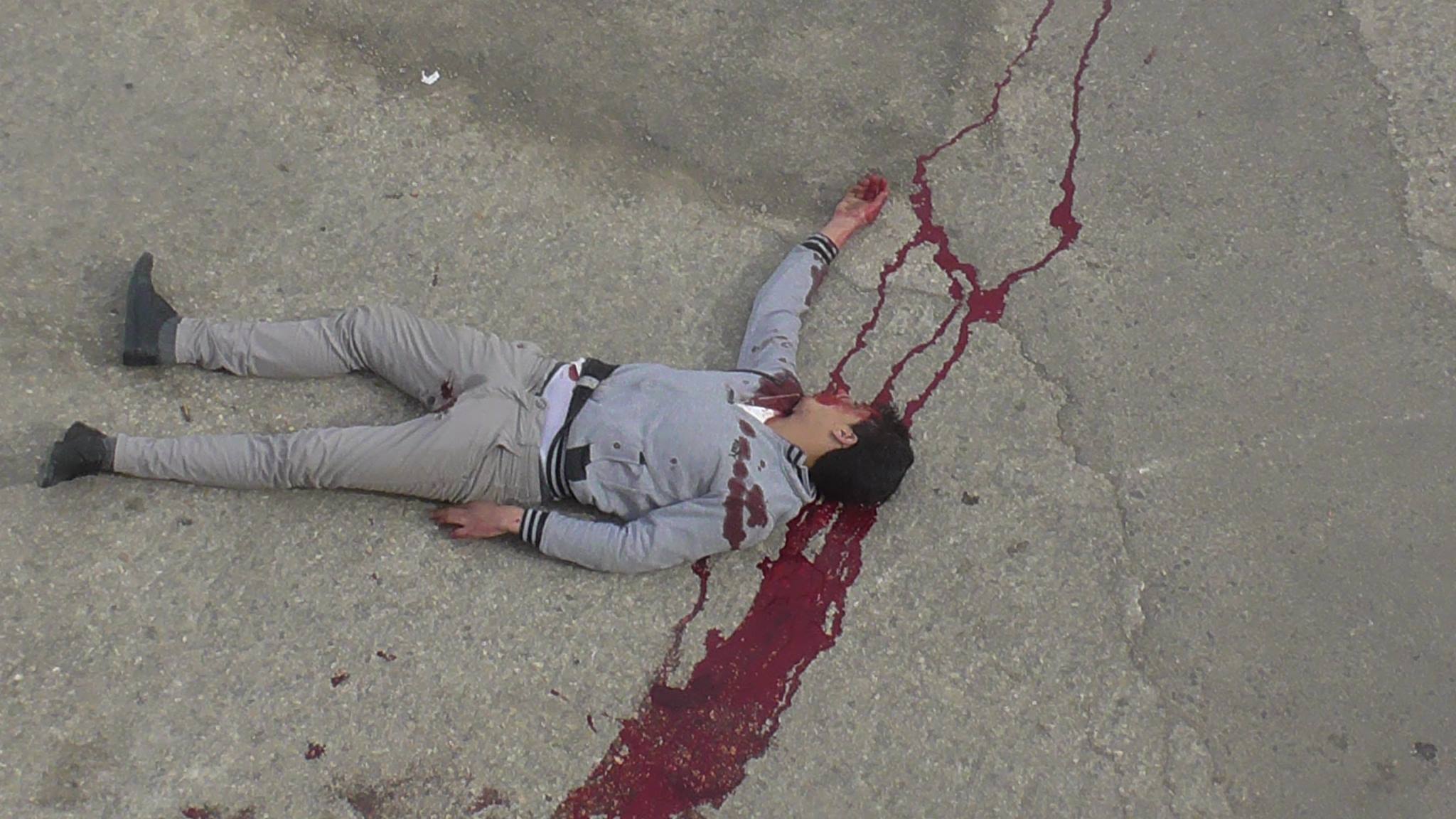-
Peaceful Ni’lin demonstrators attacked with deadly tear gas canisters
25th March 2016 | International Solidarity Movement, al-Khalil team | Ni’lin, occupied West Bank On Friday 25th March, Palestinians, Israeli activists and foreign activists alike took part in the weekly demonstration to oppose the apartheid wall that surrounds the town of Ni’lin and has taken much of the villages land. The demonstration which started peacefully was […]
-
Illegal settlers celebrate Purim after cold-blooded murder of Palestinian youths
24th March 2016 | International Solidarity Movement, al-Khalil team | Hebron, occupied West Bank On the 24th March, Israeli settlers from the illegal settlements in occupied al-Khalil (Hebron) celebrated the holiday of ‘Purim’. The settlers marched through the Old City of al-Khalil, starting off from the spot where just a few hours before, Israeli forces […]
-
An evident extrajudicial execution in Hebron
24th March 2016 | International Solidarity Movement, al-Khalil team | Hebron, occupied West Bank On the morning of the 24th of March, around 8:30 am, two Palestinian youths, Ramzi Aziz al-Qasrawi, 21 years old, and Abed al-Fattah Yusri al-Sharif, 21 years old, were shot to death by Israeli forces after an alleged stabbing attempt in the […]
Action Alert An Nabi Saleh Apartheid Wall Arrests BDS Bethlehem Bil'in Cast Lead Demonstration Denial of Entry Ethnic Cleansing Farmers Gaza Global Actions Hebron House Demolition International law Israeli Army Jerusalem Live Ammunition Nablus Ni'lin Prisoner Ramallah Rubber-coated steel bullets Settlement Settlers Settler violence Tear-Gas Canister Video



